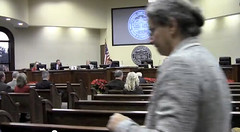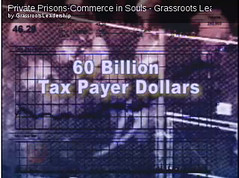Disposal of solid waste (trash/garbage) is a matter of community public health and safety and providing such service is the responsibilty of the local governing bodies. How should trash health and safety responsibly be implemented?
 We cannot be left in a situation where residents are either “forced
to buy” service from a provider, or have no option but to burn
their trash. The government can levy a tax, but they cannot say that
residents are forbidden to buy a service from an independent provider.
We cannot be left in a situation where residents are either “forced
to buy” service from a provider, or have no option but to burn
their trash. The government can levy a tax, but they cannot say that
residents are forbidden to buy a service from an independent provider.
Such a ruling is
- unfriendly to those who currently own, or want to start a waste collection business in our county,
-
unfriendly to the
residents who are counting on the government to follow
the state-legislated goals to
“protect the health safety, and well-being of its citizens and to protect and enhance the quality of its environment” ,
- unfriendly to the environment as trash ends up on the side of the road or polluting the air by being burned and leaves us to face a new problem on a different day.
Residents in the unincorporated areas of the county who want curb side collection, for the most part, already purchase it. Those of us using the collection centers do so because it is our preference.
The county should (in my opinion) create a special tax district for waste disposal (it already makes special lighting districts) and tax the residents for the maintenance of the collection centers.
-gretchen






 is popular with some elected & appointed officials “We’ve been chosen. Now
go away & don’t ask any questions about what we are doing until it’s time
to vote again.” I don’t think all the individuals share the attitude,
but some do & over time it has become standard procedure. Hopefully,
as more citizens pay attention & ask for more insight procedure will
adjust. There is a reason for open meetings & sunshine laws & it’s not
so citizens can listen to or read about decisions based on information
they are not allowed to hear or observe.
is popular with some elected & appointed officials “We’ve been chosen. Now
go away & don’t ask any questions about what we are doing until it’s time
to vote again.” I don’t think all the individuals share the attitude,
but some do & over time it has become standard procedure. Hopefully,
as more citizens pay attention & ask for more insight procedure will
adjust. There is a reason for open meetings & sunshine laws & it’s not
so citizens can listen to or read about decisions based on information
they are not allowed to hear or observe.






